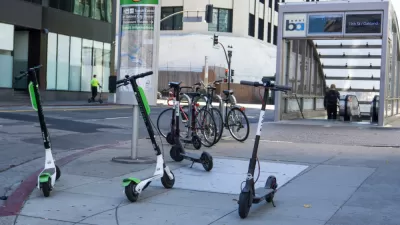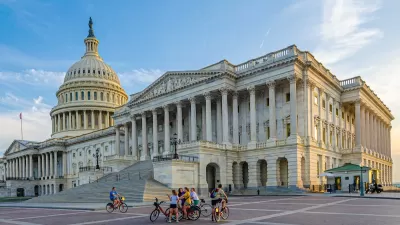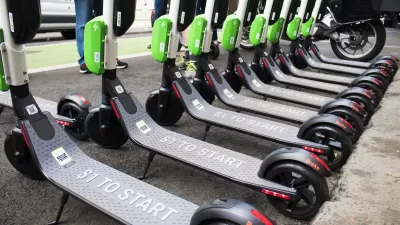Shared mobility services are proliferating in small towns and cities, despite the regulatory hiccups operators have been experiencing in larger markets.

“In recent months, shared micromobility companies like Bird, Lime and Lyft have rapidly expanded their products in small and midsized markets with populations ranging from 2,500 to over 150,000,” reports Austyn Gaffney in Smart Cities Dive. Despite the backlash to micromobility from some community groups concerned about safety and parking, industry stalwart Bird “grew from about 250 global markets last year to more than 400 this spring.”
“Cities have been amenable to micromobility options like e-bikes and e-scooters over the last five years as ways to increase residents’ and visitors’ transportation options, ease congestion, and reduce transportation emissions, which represent over a quarter of the greenhouse gas emissions in the U.S.” Meanwhile, operators continue to implement speed limiters, geofencing, and other features to address cities’ concerns. “Chris Cherry, professor of civil and environmental engineering at the University of Tennessee, Knoxville, whose research focuses on micromobility options emerging in the transportation sector, said that when he hears concerns over sidewalk clutter, he asks those issuing the complaint to consider the amount of parked cars across urban environments, and to note the historic buildings demolished to make way for parking lots.”
Pointing to fears about the safety of scooters, Cherry points out that the devices are held to much higher standards than cars, which pose a much greater danger to their passengers and pedestrians. Cherry notes that “while 80% of scooter users killed during rides were hit by cars, there is ‘vanishingly small evidence’ that pedestrian injuries are caused by scooters.”
FULL STORY: Micromobility operators expand their footprint in small and midsized cities

Alabama: Trump Terminates Settlements for Black Communities Harmed By Raw Sewage
Trump deemed the landmark civil rights agreement “illegal DEI and environmental justice policy.”

Study: Maui’s Plan to Convert Vacation Rentals to Long-Term Housing Could Cause Nearly $1 Billion Economic Loss
The plan would reduce visitor accommodation by 25% resulting in 1,900 jobs lost.

Planetizen Federal Action Tracker
A weekly monitor of how Trump’s orders and actions are impacting planners and planning in America.

Waymo Gets Permission to Map SF’s Market Street
If allowed to operate on the traffic-restricted street, Waymo’s autonomous taxis would have a leg up over ride-hailing competitors — and counter the city’s efforts to grow bike and pedestrian on the thoroughfare.

Parklet Symposium Highlights the Success of Shared Spaces
Parklets got a boost during the Covid-19 pandemic, when the concept was translated to outdoor dining programs that offered restaurants a lifeline during the shutdown.

Federal Homelessness Agency Places Entire Staff on Leave
The U.S. Interagency Council on Homelessness is the only federal agency dedicated to preventing and ending homelessness.
Urban Design for Planners 1: Software Tools
This six-course series explores essential urban design concepts using open source software and equips planners with the tools they need to participate fully in the urban design process.
Planning for Universal Design
Learn the tools for implementing Universal Design in planning regulations.
Caltrans
Smith Gee Studio
Institute for Housing and Urban Development Studies (IHS)
City of Grandview
Harvard GSD Executive Education
Toledo-Lucas County Plan Commissions
Salt Lake City
NYU Wagner Graduate School of Public Service





























